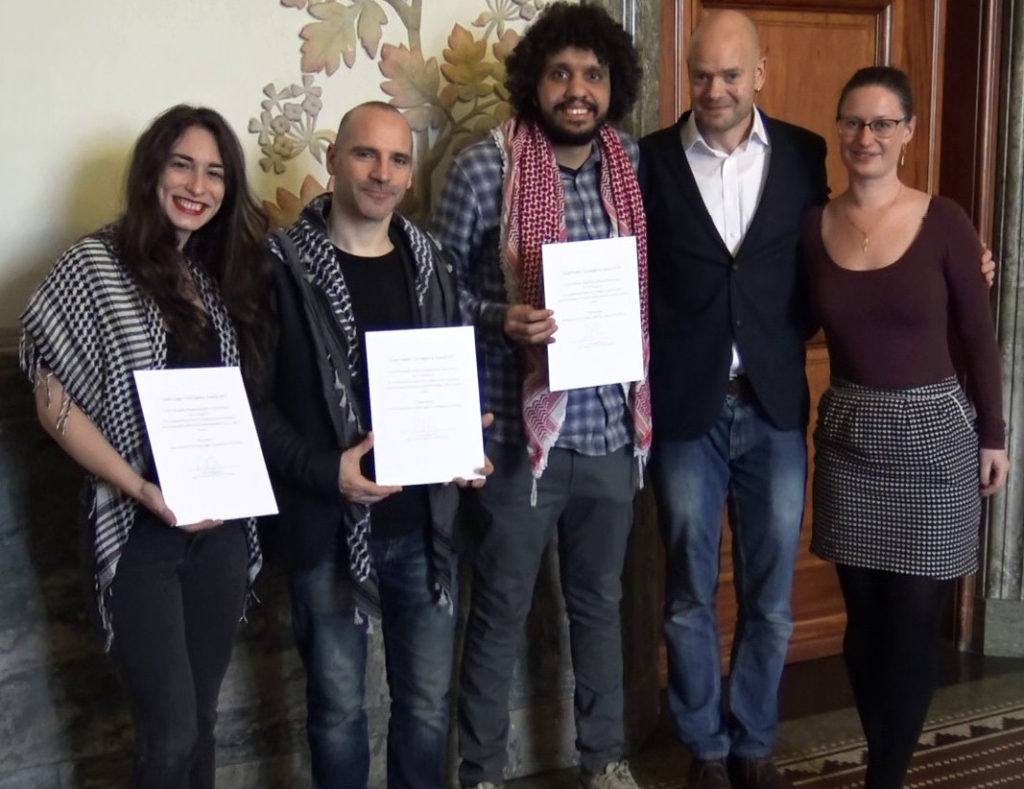Ronnie Barkan is a long-time Israeli friend of FSOI. Alongside two other activists for Boycotts, Divestments and Sanctions (BDS) against Israel, he faced a first trial hearing in Berlin on 4 March for disrupting a talk by Israeli lawmaker Aliza Lavie at Humboldt Wniversity in Berlin (in 2017). The three were pointing out her complicity in war crimes and crimes against humanity. The three are Ronnie Barkan, Stavit Sinai (both Jewish-Israeli) and Majed Abusalama (Palestinian), known as the “Humboldt 3”.
This is his powerful speech to the court.
I stand here today with a sense of pride.
Not the pride of vanity, but pride in knowing that what I did was fundamentally right and done for the greater good.
I also stand here today as the accuser, not the accused.

Continue reading “Ronnie Barkan: I stand here today as the accuser, not the accused”



